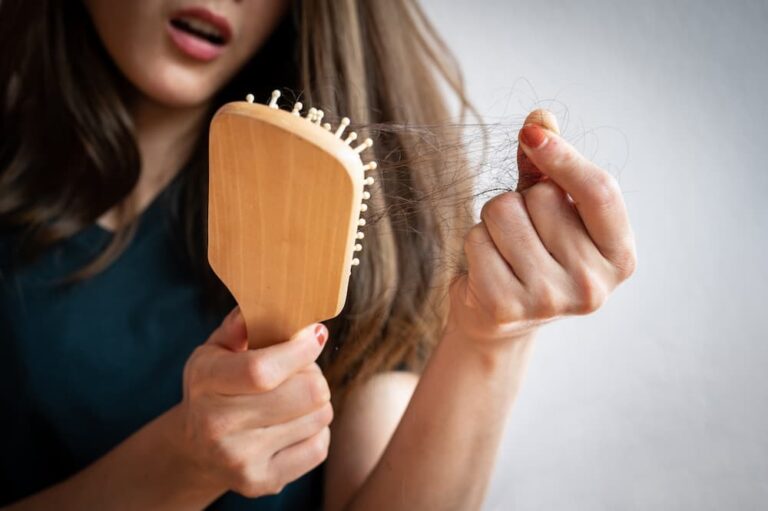
Your hair needs a wide range of nutrients to stay healthy just as much as the rest of your body does, and you may experience hair loss and several other hair concerns if you do not consume enough of certain types of nutrients. Here are some of the most important things to know about why your diet may lead to hair loss and how TM Hair can help!
What Types of Nutrition Deficiencies Can Contribute to Hair Loss?
Nutrition-related hair loss can be linked to a wide range of vitamin, mineral, and protein deficiencies. In some circumstances, consuming significantly more of a particular nutrient than your body needs can have similar effects, but hair loss and unhealthy hair are generally more likely to be caused by not getting enough of a certain nutrient. Here are some of the most common reasons your diet may be causing your hair to fall out.
Vitamins
Getting plenty of vitamins plays a key role in improving the health of every aspect of your body, including your hair, which means that not consuming enough foods that are rich in key vitamins can cause your hair to become weak and dull. A diet that contains too little (or too much) of some of the essential vitamins can impact the overall condition of your hair by making it dull or brittle, causing it to grow more slowly than it should, or causing it to fall out altogether. Some of the most common types of vitamin deficiencies that can lead to hair loss or damaged hair include vitamin B7 (biotin) and vitamin C. Consuming too much vitamin A may also lead to hair loss because your body may not be able to process it properly.
Protein
Consuming plenty of protein is another important step in keeping your hair as strong and healthy as possible, which means that a significant protein deficiency may weaken it and make it more susceptible to damage. Your hair is approximately 95 percent keratin, which is a type of protein that is built with a combination of up to twenty types of amino acids. With little else to work with, hair that does not contain an appropriate amount of protein may grow slowly and eventually fall out.
Consuming too much protein can also have a negative impact on your hair because it can lead to a biotin deficiency, which means that it is important to understand what your body needs and take steps to fall into a healthy range each day. However, it is quite difficult for most people to consume an unhealthy amount of protein.
Minerals
Low levels of certain minerals, such as iron, zinc, and selenium, can keep your scalp and hair follicles from absorbing enough nutrients to keep your hair healthy and in place. Consuming too little iron can lead to anemia, which has the potential to prevent your hair from getting the nutrients it needs, and a lack of other types of key minerals can cause similar concerns.
How Can Hair Restoration Help Me Manage Nutrition-Related Hair Loss?
Improving your diet can often make a significant difference when it comes to reducing and eventually reversing hair loss that is related to hair loss. If we are unable to determine which nutrient is causing hair loss or adjusting a diet does not seem to help, we offer a wide range of hair loss solutions that may help to improve the health and appearance of your hair. Our surgical and non-surgical hair restoration options can help to combat the effects of a variety of causes of hair loss.
TM Hair: Transforming Lives Through Hair Loss Solutions
At TM Hair, we are here to help residents of the Houston, TX, area determine why they are experiencing hair loss and take steps that can help reverse it. While hair loss that is related to dietary concerns can often be reduced by consuming more foods that are high in the specific types of nutrients you are lacking, our hair loss solutions can also be a good fit for many individuals who are searching for a faster and more effective option for addressing their hair concerns. Contact us today to schedule a free scalp analysis and complementary consultation to help you better understand how to best manage your hair!
Boyloso/Shutterstock

